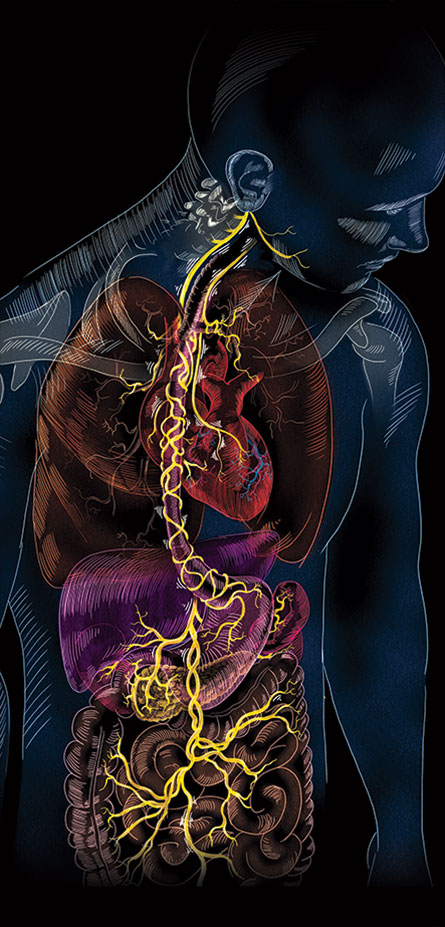Autoimmune disease is a rapidly growing concern that demands our attention. According to the National Institute of Health (NIH), there are currently 23.5 million Americans who are affected by full-blown autoimmune diseases. This is a staggering number of people affected by a condition that causes chronic suffering and disability due to its progressive nature. In addition to its reach, autoimmune conditions have a wide scope: research has identified over eighty different autoimmune diseases, with another forty or so potentially having an autoimmune origin.
It is crucial to understand that nobody is born with an autoimmune disease. People may have a genetic predisposition, but it is often a combination of factors in their lives that triggers autoimmunity. This field of study, known as epigenetics, is expanding rapidly. What makes autoimmune issues harder to diagnose and sometimes treat is that they often develop silently at first. It could be a traumatic event, a bout of flu, or underlying food sensitivities that push them over the edge. Usually, there is a blend of several factors and at a certain point, their immune system undergoes a change. It no longer distinguishes between self and non-self tissues. They wake up one day and find their immune system producing antibodies against their own thyroid gland, cartilage in their joints, or any of the 80+ body parts identified so far.
Although a person may produce antibodies against certain tissues or organs, it doesn’t necessarily mean they are experiencing symptoms. They may be unknowingly part of the autoimmune club. However, as time goes by, vague and unexplainable symptoms begin to manifest. Fatigue, brain fog, achy joints, and increased reactions to familiar foods become noticeable. It is not merely attributed to aging, as is commonly assumed by both patients and doctors. Beneath the surface, autoimmune physiology can be at play. It only becomes an actual autoimmune “disease” when the destruction of a gland or tissue reaches a point where the system fails. At that stage, medical intervention becomes necessary, marking the official onset of the disease.
The NIH statistic of 23.5 million people accounts only for those with full-blown autoimmune diseases. It doesn’t include the millions of individuals in the early stages, who may feel unwell but have yet to be categorized as having a disease. Unfortunately, our medical system tends to focus primarily on disease treatment rather than prevention or early intervention. Consequently, those who are experiencing early signs of autoimmunity are allowed to progress until they require stronger medications.
Much research is confirming that the gut has a lot to do with the onset and progression of autoimmunity. With that knowledge, there is an invitation to realize that each person has agency to get ahead of disease states and be able to address them naturally in an effective way. We do this with functional medicine testing and by addressing these inflammatory pressures with acupuncture, herbal medicine and nutrition. These tools have been known to slow the progression of autoimmunity down, and in some cases, when properly addressed, it may never reach the disease state at all.
So why do we address the gut with autoimmunity? The gut plays a significant role in autoimmunity. The surface area of the digestive tract is vast, equivalent to the square footage of a tennis court when spread out flat. It is only one cell thick and can be damaged by inflammatory foods or reactions that can take place in the gut. When we consume inflammatory foods that irritate our digestive tract, we trigger inflammation in a massive portion of our body or food material can “leak” out into our bloodstream and trigger the immune system to attack anything it recognizes as a target. In the case of autoimmunity, any organ in the body can become a target – some organs cause a more severe condition than others.
This seeping out of inflammatory agents from the gut is called “leaky gut,” and is the cause of a lot of food sensitivities. Inflammation in the intestinal tract allows more substances to enter the bloodstream, triggering an immune response that intensifies overall immune activity. By taking steps to heal these inflamed tissues, not only can we alleviate symptoms like bloating, gas, hives after eating, and gut pain, but we can also mitigate a major pathway towards the development of full-blown autoimmune diseases.
Discover the power of Chinese Medicine and Functional Medicine and reclaim your well-being. When individuals venture beyond the conventional approach to autoimmunity, you can embark on a journey of comprehensive evaluation and targeted treatment. Here, you gain access to an array of diagnostic tools and protocols that are often overlooked in traditional medical settings.
Unlike standard medical visits, functional medicine offers specialized testing for conditions like “leaky gut,” food sensitivities, and various autoimmune markers. Additionally, it examines the status of the gut microbiome—a crucial factor in autoimmune health. These tests are rarely conducted within mainstream medicine, often delayed until significant damage has already occurred. So why wait? If you, like millions of other Americans, sense that something isn’t right but struggle to find answers, it’s time to take charge of your health.
The first step involves finding a knowledgeable and open-minded functional medicine practitioner who thinks outside the box and explores the right avenues. The combination of using acupuncture, herbs, and nutritional supplementation is pivotal in lowering the inflammation, promoting healthy metabolism, and healing the gut. Alongside the testing, comprehensive gut repair programs are keys, providing remarkable relief from long-standing symptoms in as little as one month. Of course, everyone’s pathologies are unique, but by addressing gut inflammation head-on, incredible transformations can occur.
At Source, we are dedicated to helping individuals on their healing journeys and offer gut repair programs. With access to the aforementioned testing and more, we can guide you through the intricacies of autoimmunity—a complex web of interconnected mechanisms occurring simultaneously in the body. With patience and focused inquiry, these intricate connections can be unraveled, paving the way for a remarkable improvement in your overall well-being. Take the leap and embrace the transformative potential of functional medicine. You deserve to feel a whole lot better!






